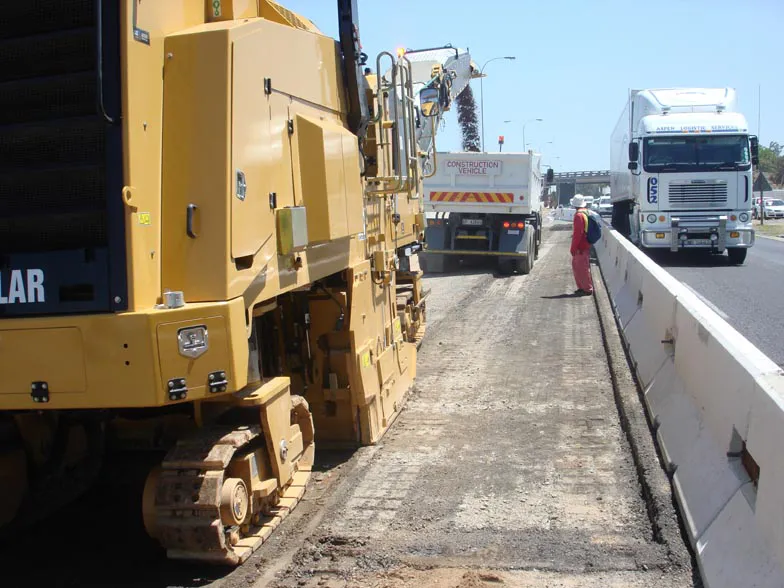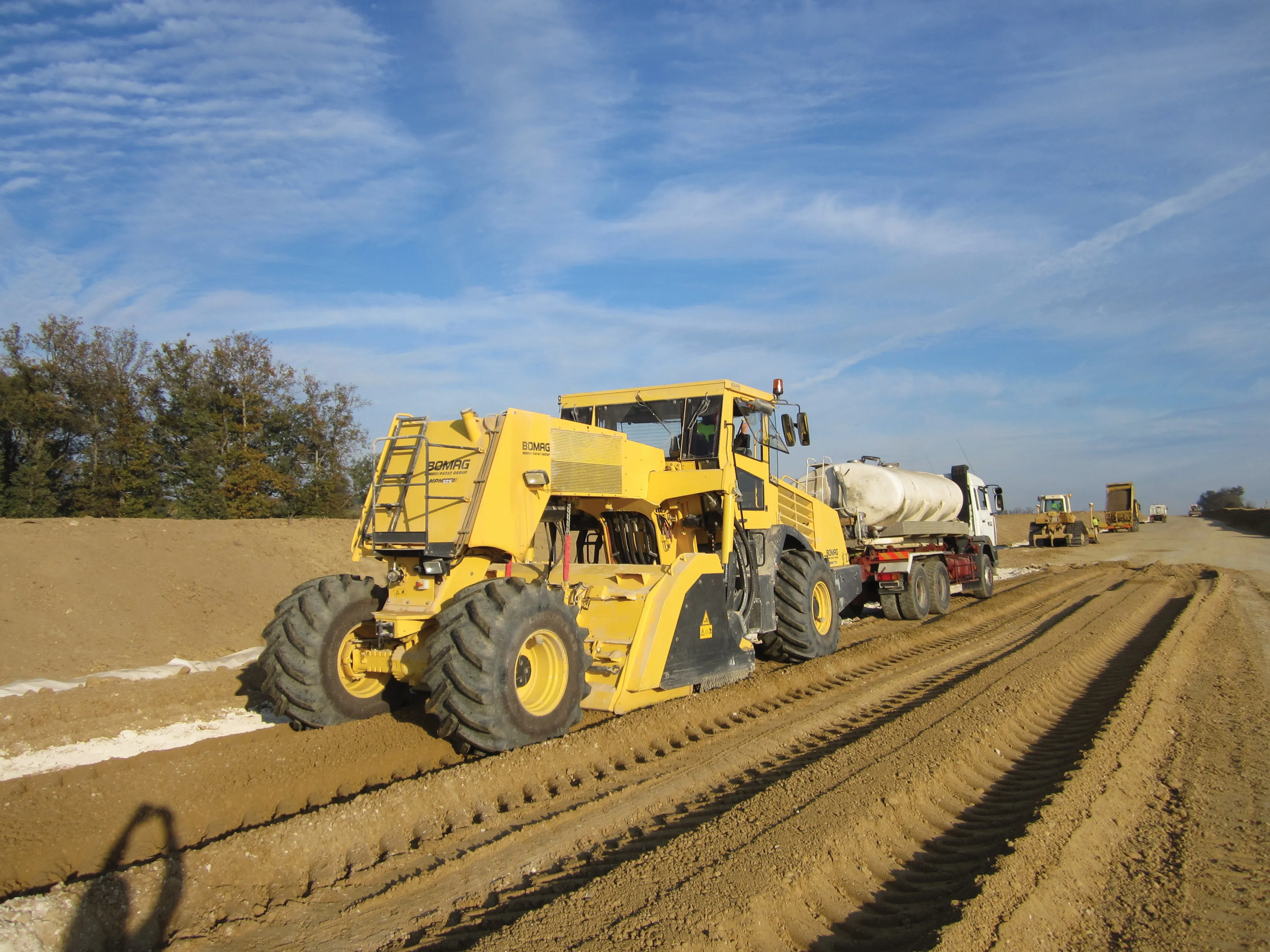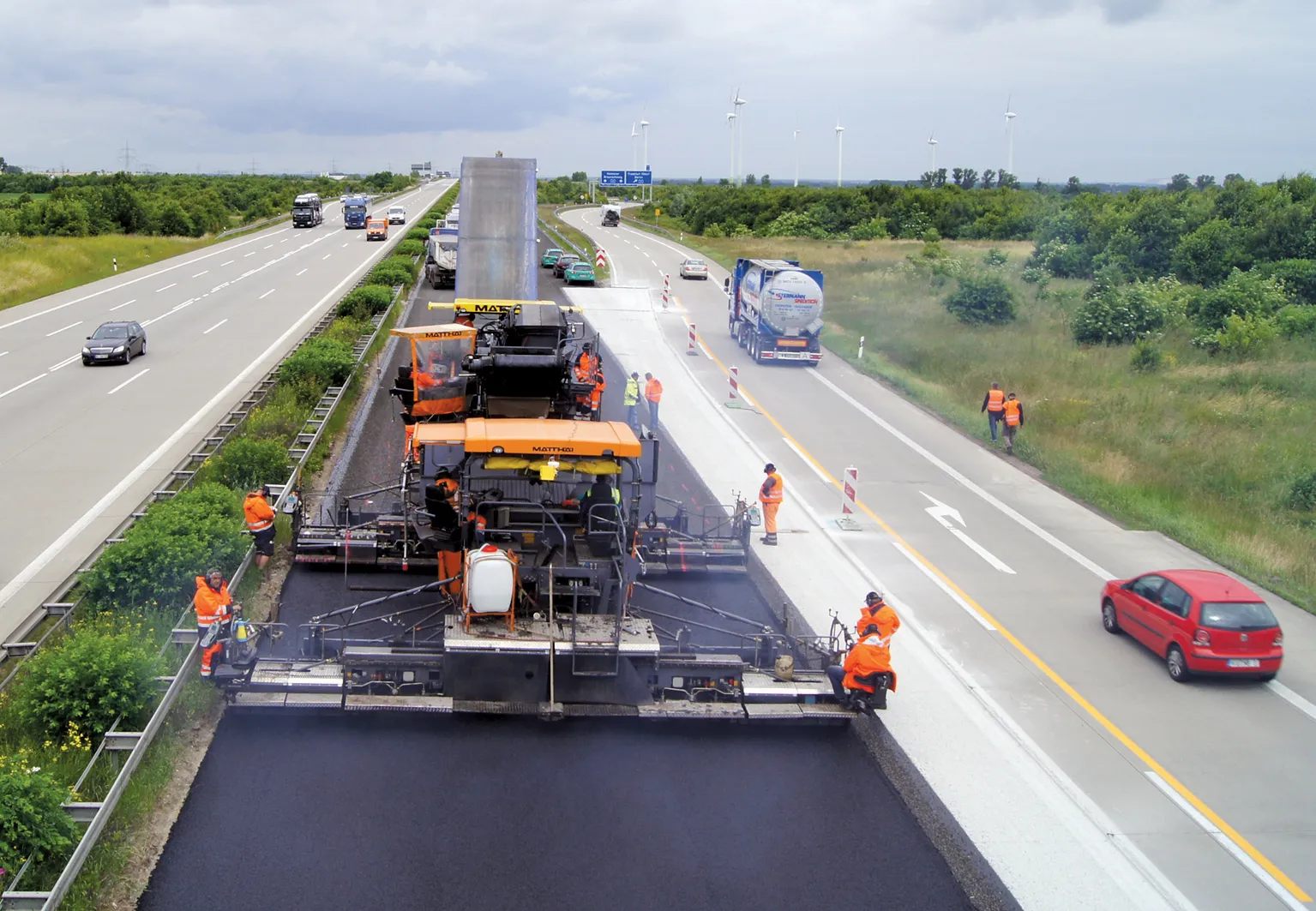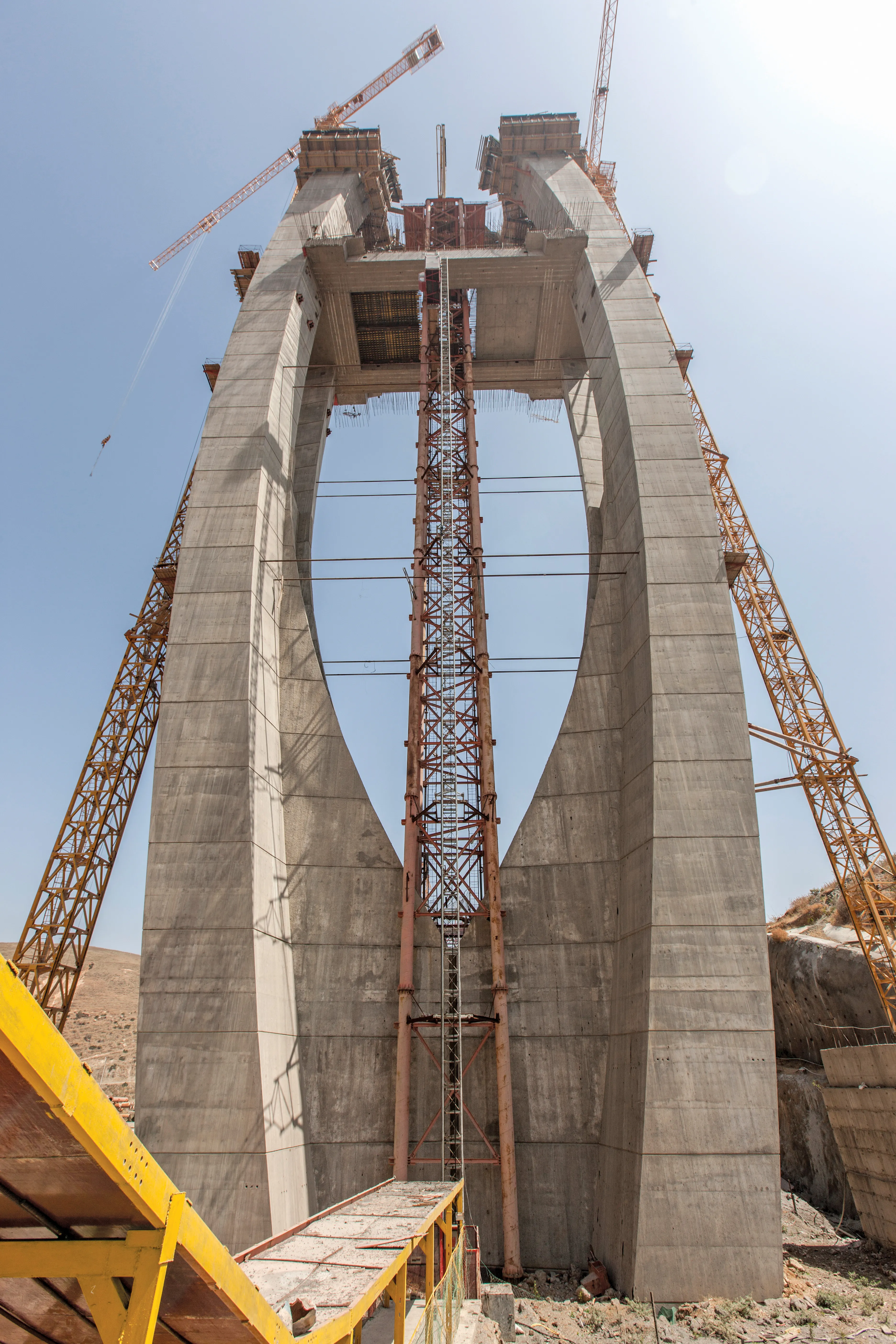
Due to increasingly heavy traffic on the highway, it was in need of an upgrade, and fast. So one of Cape Town's largest contractors, Vusela, was awarded the government contract to remove the asphalt layers and stabilise the sub-base to strengthen the road's load capacity in preparation for resurfacing.
In turn Vusela asked
Each of the state-of-the-art machines offers a variety of features and productivity, and together they are said to offer a productive and cost effective solution to the road rehabilitation process.
Vusela acquired the machines with the help of Barloworld Equipment, South Africa's Caterpillar dealer for over 80 years. Both machines were the first Caterpillar road construction machine purchases for the contractor, so a commissioning and technical training team was dispatched for three days to get the contractor's operators and crew up and running fast.
According to South African and Near East paving representative and sales manager Johann Hahn, Vusela's operations manager Alan Hendricks has been "very satisfied with machines' performance and the technical support provided by Barloworld and Caterpillar.”
Vusela first utilised the PM200 on the project to remove the existing layers of asphalt, achieving a cutting depth of up to 10cm on one pass. Crews then used the RM300 to reclaim and remix the road's sub-base at a depth of 16cm. A percentage of water was accurately mixed into the processed material through the RM300's water spray option, helping to facilitate the compaction process.
The rotary mixer advanced at a speed of 27m/min throughout the Highway N2 project.
Located on the southeastern tip of Africa on the South Atlantic Ocean Cape Town was established in the mid-1600s as a stopover point along the spice route between the Far East and the Netherlands. Today, South Africa is considered an emerging market with a robust growth rate, and an ample supply of natural resources.
And Hahn sees continuing growth opportunities for the paving sector in South Africa, as its modern infrastructure strives to support the efficient distribution of goods and services throughout this country of 1.2 million m² km.
Barloworld Equipment is the Caterpillar dealer for 11 countries in southern Africa, as well as Siberia, Spain and Portugal, Andorra, Sao Tomé and Principé. It supplies equipment and solutions to customers in the mining, construction, marine, and electrical power generation sectors.
Caterpillar's versatile duo
The Cat RM300 rotary mixer was designed for high performance in both full-depth reclamation and soil stabilisation applications, and is said to deliver these capabilities with proven reliability.
"With its rear wheel drive option, larger rear tyres and universal rotor option, the RM300 is well equipped for even the toughest reclamation jobs, applications that require maximum depth soil stabilisation, high in moisture content such as lime or slurry or other liquid stabilising agents.
"Simplified service and unmatched operator comfort are just a few of its features," says Caterpillar.
"The Cat PM200 Cold Planer combines superior performance and reliability to provide full-depth removal of asphalt and concrete pavements with high productive results."
The PM200's C18 engine with ACERT Technology delivers 429 kW of clean burning power for optimised engine performance. Quick release conical tool holders allow for fast and easy replacement and its high-capacity folding loading conveyor adds versatility and delivers increased jobsite productivity.









